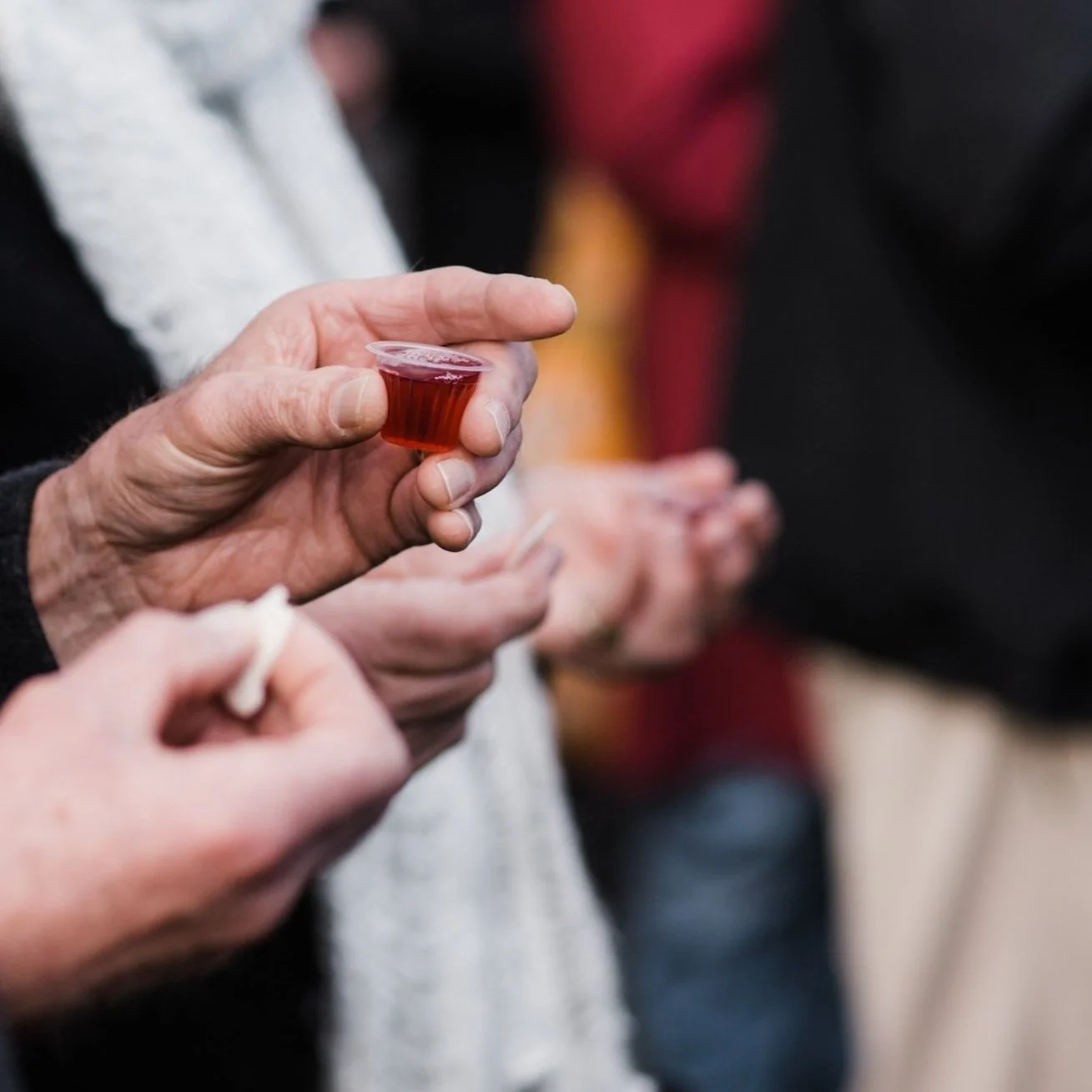Why Do You Need to be Baptized to Take The Lord’s Supper?
“The unifying principle in all five of these reasons is God’s covenantal relationship to his people. The covenant is the great source of security and assurance in the Christian life. “
Many evangelicals who visit our church are caught off guard when, every Sunday, we say that you have to be baptized to take the Lord’s Supper. I was recently asked why we do this, and since others likely have this same question, I thought it would be helpful to answer it here. Here are five brief biblical and theological reasons for this practice:
The Lord’s Supper is a renewal of the covenant.
The basic theological explanation for this is that the Lord's Supper is a covenant renewal rite. We enter into covenant with God through baptism, and we renew the covenant through the Lord's Supper. It is very similar to why Christians say you can't have sex before marriage. The wedding is how you enter into the covenant, and the marriage bed is how you renew the covenant. It is the same with baptism and the Lord's Supper. My next two points show where in Scripture we get this theological commitment.
2. The pattern of baptism-then-meal is in the Exodus story.
You can see the pattern of baptism first, supper second, in 1 Corinthians 12:13: “For in one Spirit we were all baptized into one body—Jews or Greeks, slaves or free—and all were made to drink of one Spirit.” Baptism joins a person to the body of Christ, and so that is why it makes sense for baptized persons to receive the body and blood of the Lord. In that same book, Paul roots his understanding of baptism and the Lord's Supper in the Exodus story (1 Cor. 10:1–4). The Israelites passed through the Red Sea first (Exod. 14; baptism), and then ate bread from heaven (Exod. 16) and drank (Exod. 17). Again at Mt. Sinai they were washed (Exod. 19; baptism) and then ate and drank in God's presence (Exod. 24:11). The consistent pattern of the Scriptures is baptism then meal.
3. Circumcision was required to eat the Passover in the Old Testament.
Another rationale can be seen in how baptism/Lord’s Supper corresponds to circumcision/Passover in the Old Testament. The Apostle Paul says baptism is how a Christian is circumcised in Christ (Col. 2:11-12). Also, the Lord's Supper was Jesus restructuring the Passover around himself (see 1 Cor. 5:7-8). Baptism and the Lord's Supper are the new circumcision and Passover. But in the OT, only families with circumcised males were allowed to eat the Passover (see Josh. 5). So in the same way, only baptized people receive the Lord's Supper.
“Baptism joins a person to the body of Christ, and so that is why it makes sense for baptized persons to receive the body and blood of the Lord”
4. The Lord’s Supper calls people to faith.
In our Reformed tradition, the Westminster Larger catechism points out that both baptism and the Lord’s Supper draw a distinction between those who are inside and outside the covenant:
Question 162. What is a sacrament?
Answer. A sacrament is an holy ordinance instituted by Christ in his church, to signify, seal, and exhibit unto those that are within the covenant of grace, the benefits of his mediation; to strengthen and increase their faith, and all other graces; to oblige them to obedience; to testify and cherish their love and communion one with another, and to distinguish them from those that are without.
That last clause about “distinguishing” is what we enact when we fence the table every Sunday. It is certainly uncomfortable for people who are in church and don’t get to take communion. That discomfort is good. It says, “You are not right with God until you embrace Christ and are washed by him in the waters of baptism.” I have seen throughout my ministry that non-Christians or unbaptized believers are called to faith and obedience when they have to sit in that discomfort every week.
5. This is the practice of the Church throughout history.
Alongside the biblical-theological rationale, we should be humble before the fact that this has been the position of all branches of the church for 2000 years. It is very unlikely that 2000 years of Catholic, Orthodox, and Protestant theology would all be wrong on a topic like this. The American church is very independent and ignores much of church tradition—and has suffered because of it. To not receive the wisdom of our elders is generally unwise. As Ephesians tells us, our maturity as a church is to not be shaped by the beliefs of the culture around us, "so that we may no longer be children, tossed to and fro by the waves and carried about by every wind of doctrine, by human cunning, by craftiness in deceitful schemes. Rather, speaking the truth in love, we are to grow up in every way into him who is the head, who is Christ..." (Eph. 4:14–15).
The unifying principle in all five of these reasons is God’s covenantal relationship to his people. The covenant is the great source of security and assurance in the Christian life. Unfortunately, the Lord’s Supper has often created more insecurity than assurance for tender-hearted Christians. Our hope is that by taking the Lord’s Supper together every week, the Holy Spirit would form in each of our hearts this deeply assured confession: “Truly, I am one of God’s beloved children.”



